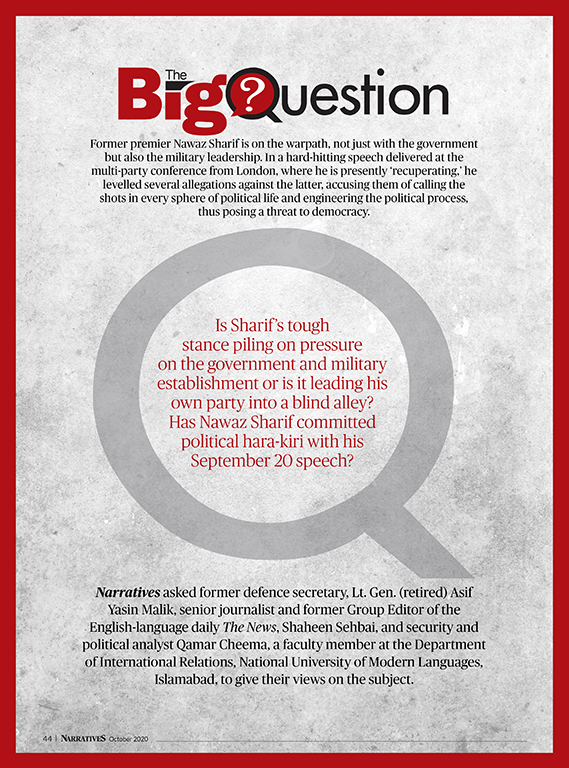
Political Economist
Dasu attack took many innocent lives of Chinese brothers, who were here to assist Pakistan. It is tragic and insane. It happened at a time when CPEC was going at good pace. Pakistan-China had also accelerated efforts to expand CPEC and bring Chinese companies to Pakistan, not only for CPEC but also for non-CPEC projects. Hence, it has been understood as an attempt to sabotage the China-Pakistan relation and investment environment of Pakistan. Thus, it is pertinent to analyse the attack in the backdrop of recent development and events in Pakistan and region. It will help to understand the implications and reasons behind the attack.
First, Prime Minister of Pakistan visited Gwadar on 5th July 2021. He inaugurated multiple projects and signed MoUs including Gwadar Expo Centre, Gwadar Fertilizer Plant, Gwadar Animal Vaccine Plant, Henan Agricultural Industrial Park, Hengmei Lubricants Plant, Gwadar Free Zone Phase-2. Asad Umar claimed that Gwadar Free Zone Phase-2 is 35 times bigger than phase-1. Two implementation agreements of 1) 1.2 million gallons per day desalination plant and 2) solar generators grant, were also signed. Prime Minister assured that CPEC projects and development of Balochistan are top priorities of Pakistan. He guaranteed the Chinses workers and investors that Pakistan will do everything to facilitate the smooth functioning.
Second, Middle Eastern countries (Kuwait, Saudi Arabia etc.), Central and West Asian States showed great interest in Gwadar and CPEC. From Middle East Kuwait is showing great interest to join and benefit from the opportunities. Ambassador of Kuwait along with others visited Gwadar on 5th July along with Prime Minster. Kuwait is showing interest to invest in SEZs, agriculture, energy etc. From Central Asia Uzbekistan has signed agreement to use Gwadar port. Tajikistan, Kyrgyzstan and other countries are also exploring options to join. China-Pakistan have also offered to extend CPEC to Afghanistan and use it as an opportunity to bring sustainable development, peace and prosperity. China-Pakistan deem it necessary to rebuild the war-torn country. It will also help to create jobs for youth and improve the living standard of people. By understanding the importance of economic opportunities Afghan government and Taliban, both are welcoming the investment and engagement with CPEC.
Third, USA is leaving the Afghanistan without any meaningful achievements and institutional arrangements. It has opened the door for enemies to create problems for Pakistan and CPEC. They are trying to use the situation in the disguise of terrorists. There is no denying fact that India openly challenged the CPEC. India has created special cells to sabotage the CPEC. Apart from India, Pakistan also have some friends which act against the CPEC. For Example, USA is not in favor of BRI and CPEC and always advise Pakistan against it. Moreover, there are some regional countries which play their role to create difficulties for CPEC and Pakistan.
Despite all these complications China is not hesitating to help Pakistan. Prime Minister of Pakistan also clearly declared that China is first choice for Pakistan. We will never compromise on our relationship with China. The enemies of Pakistan could not absorb this fact.
Thus, the enemies and rival friends started to look for opportunities to sabotage the CPEC and China-Pakistan relationship. First, they were running malicious campaigns and tried to undermine CPEC and Pakistan-China relationship through baseless allegations of debt trap, human rights etc. With the blessing of Allah, they could not get the desired results. In desperation now they have resorted to violence. Incident of Dasu is example of their desperation and losing the war against the Pakistan and CPEC. It is expected that now enemies and rival friends of Pakistan will unleash Fifth Generation Warfare. On one hand they will use cyber space to create negativity among masses. On other hand, they will resort to violence.
Hence, Pakistan and China need to prepare accordingly. First of all, China-Pakistan needs to sit together (as China-Pakistan always do) and audit the security framework for combating the future challenges. The security audit must focus on, 1) instruments of Fifth Generation Warfare (FGW), 2) potential spoilers not only the enemies but also rival friends and 3) difference between Phase-1 and Phase-2 security requirements.
In the case of FGW Pakistan needs to apply DIMEC (Diplomacy, Information, Military, Economy and, Culture) framework. The core of FGW is that no single institution can ensure the development, security and peace. Thus, all the pillars of DIMEC must work hand in hand. Second, economic opportunities and job creation for common citizens are other important elements of FGW. Pakistan will have to erect institutions and mechanisms which can ensure equal job and economic opportunities, especially for common citizens and elite capture must be avoided.
Third, Pakistan will have to say goodbye to hype creation mentality. It was good for cold war era but not for FGW. All the campaigns about benefits or resources should be based on data, facts and followed by concrete opportunities. Otherwise it can be used by opponents to build narrative that look Pakistan has so many resources and opportunities but only for elite class. Hence, there is need to rationalize the advertisement and there is no need to create un-necessary hype.
For counter narrative Pakistan needs to learn from Xinjiang example. China not only combat the baseless propaganda but also is highlighting dual standards and human rights violation by West. The point to learn and implement is that China is not doing it in air, China is presenting the hard facts and figure.
Second, there is no doubt that state level security institutions are playing a formidable role. They have provided excellent security during the phase-1 of CPEC and Pakistan is reaping the benefits in the form rapid work on CPEC and non-CPEC projects and investment. However, there is huge difference between CPEC phase-1 and CPEC phase-2’s security requirements. Phase-2 is all about industrial and agriculture cooperation. The Chinese work force and investment will be more scattered and Chinese citizens will be in direct contact with vast number of citizens and culture. The exposure at huge scale requires to re-orient the security framework. First, security audit should be done of all companies and on the basis of audit a comprehensive program should be developed for companies. Second, security mapping of each district of Pakistan should be done. Third, there should be formal linkages among CPEC, non-CPEC companies and state institutions to share the outcome of security audit and mapping. Fourth, companies should develop their capacity to counter the propaganda through the close linkages with communities in project areas. For that purpose, they will have to understand the local dynamics and culture. In conclusion, Dasu attack urge Pakistan to evaluate the new dynamics and realities in the backdrop of FGW. For that purpose, Pakistan needs leadership with strong power of imagination, which will enable the country to combat unseen threats. Second, State and security institutions will have to take companies and people as partner not recipients of services. Last but the most important element would be to deploy the human resource which can understand the China, with the lens of China. It will help Pakistan to understand the working style and requirements of China, which is urgently requires now.



